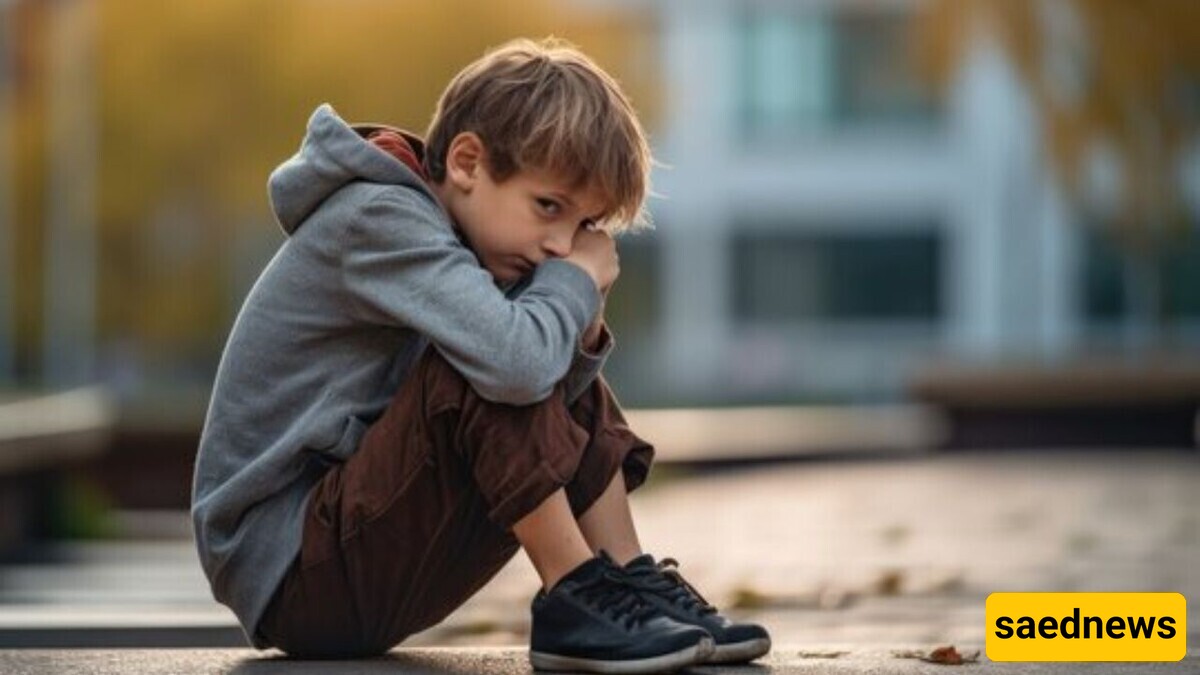Along with a brief explanation of social anxiety in children, several effective strategies are provided below.

According to the family health service of Saed News, when you hear the phrase "social anxiety" in reference to children, what kind of anxiety comes to mind? Fear of being in and speaking in front of a crowd? Retreating from games or being afraid of facing many people or being in crowded social settings? Sahar Pehlavanneshan, a child and adolescent psychologist, discusses this issue in our children.
All the guests are waiting for Mahya to start! Her mother has praised her new memorized poem, and it's time for her to perform and receive a reward. But Mahya has firmly decided that she won't utter a single word in front of all those people! Fear of Being Evaluated Fear and anxiety about being present and speaking in groups, participating in group activities, or being in crowded social settings... Pehlavanneshan explains: "This is partly accurate, but Social Anxiety Disorder (SAD) encompasses a broader range of behaviors. This disorder can be generalized or specific. One characteristic of children with social anxiety is their fear of being in groups, not because of the number of people, but because of the fear of being judged or evaluated."
Children Fear Being Mocked
Children are worried about negative judgment from others and fear being rejected. Therefore, they don't know how to behave in social situations. The child psychologist emphasizes that this judgment forms the basis of the child's anxiety: "Our child worries about making mistakes or saying something incorrect and being ridiculed by others. This worry can lead to avoiding activities like reading aloud in class."
The Role of Perfectionist Parents in Raising Anxious Children
Perfectionist parents who overly protect their child cause the child to be unable to perform correctly in social situations. Pehlavanneshan explains: "For instance, in various situations and interactions with different people, they don't know how to act initially; should they greet, smile, or make eye contact?... They are worried about making mistakes and being mocked by others."
Compensating for Weakness in Speech with Non-Verbal Solutions
Children with a limited vocabulary may not know how to respond in social situations. For example, when someone greets them or asks about their well-being, they may be unable to respond. In such cases, non-verbal behaviors like saluting or clapping can reduce the child's anxiety.
What Goes on Inside Anxious Children?
Brain imaging of children with social anxiety shows increased blood flow in the amygdala region of their brain. This increased blood flow affects the brainstem, regulating the child's heartbeat and breathing. This causes the child to feel threatened and anxious in social situations, which can manifest as trembling, palpitations, dizziness, and other severe panic and phobia symptoms.
The Role of Genetics and Environmental Factors in Children's Anxiety
In contrast, a five or six-year-old child with high social skills can effectively communicate even with strangers and has a vast vocabulary. They surprisingly provide all the answers you expect and even try to surprise you during phone conversations, doing so skillfully. This child has undoubtedly learned these skills faster than their age. To some extent, this is related to the child's personality. If the child is extroverted and interested in new experiences and unique creativity, they may expose themselves to new experiences, finding these challenges appealing. But how much of these traits are acquired versus inherent? Pehlavanneshan states: "For example, the father may have high social skills, or a close relative may have effective social interactions. Some of these traits might be genetically transmitted or be a type of familial talent. Studies show that about 15 to 20 percent of these traits depend on genetics and family environment. If parents are inclined towards introversion, the likelihood of the child not having social anxiety is lower."
What Can We Do to Address This Disorder?
If we feel that our children are experiencing social anxiety, we need to find strategies to manage this issue and help them lead a calm, secure life through beneficial programs. Encouraging children to develop self-esteem can be effective in reducing social anxiety. Additionally, we should encourage our children to express their feelings and opinions in front of others and ensure they are supported by the family. We should consider group and social activities for our children and encourage their participation; such activities can significantly aid in learning and expressing opinions for socialization. We should strive to think positively and speak positively, so our children do not learn negativity and anxiety from us as an effective model. We should teach them conscious behaviors and responses derived from awareness in situations that can create tension, pressure, and anxiety.



